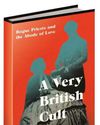
Not every general can be Sun Tzu. Some might have benefited from the Chinese strategist's advice, but many military leaders, it seems, never bothered reading him - or more likely never knew he existed. Some great generals never had any formal military training; command was thrust upon them, thanks to their royal blood, their nobility or even their elevation by their peers. The idea of formal training in command and staff work is a relatively modern phenomenon, first emerging in its present form during the mid 19th century. Still, the best generals read about the campaigns of those who came before them.
For instance, the Emperor Napoleon rarely travelled anywhere without a small library, whose titles included Caesar's Gallic Wars, Arrian's The Anabasis Of Alexander [the Great], and other ancient military texts by Thucydides and Xenophon. The idea was that by studying the battles of the past, you would be better prepared to fight those of your own.
Of course, it could be argued that the problems facing Julius Caesar or Alexander the Great were very different from those of later generations of commanders. Still, if even Napoleon recognised the benefits of learning from the past, then the chances were, other generals would profit from them too. While writing 100 Greatest Battles for Osprey Publishing, this link between commanders from previous centuries grew increasingly obvious to its author, Angus Konstam. For example, the tactics used by Caesar at the Siege of Alesia in 52 BCE would have influenced the operations of the Vietminh commander General Giáp at the Siege of Dien Bien Phu in 1954. The only time the adage that history repeats itself is especially true is when lessons gleaned from past battles are used to plan military operations in later centuries.
هذه القصة مأخوذة من طبعة Issue 131 من All About History UK.
ابدأ النسخة التجريبية المجانية من Magzter GOLD لمدة 7 أيام للوصول إلى آلاف القصص المتميزة المنسقة وأكثر من 9,000 مجلة وصحيفة.
بالفعل مشترك ? تسجيل الدخول
هذه القصة مأخوذة من طبعة Issue 131 من All About History UK.
ابدأ النسخة التجريبية المجانية من Magzter GOLD لمدة 7 أيام للوصول إلى آلاف القصص المتميزة المنسقة وأكثر من 9,000 مجلة وصحيفة.
بالفعل مشترك? تسجيل الدخول

A WEAPON FOR ABOLITION
Stephen Taylor recounts the story of HMS Black Joke and the West Africa Squadron's fight to stop slavery

A VERY BRITISH CULT: ROGUE PRIESTS AND THE ABODE OF LOVE
How a sinister Victorian sect operated deep in the heart of rural Somerset

THE LOST CITIES OF SOUTHEAST ASIA
Uncovering the history and legacy of some of the world's most mysterious locations

What If...MARILYN MONROE HAD LIVED?
After defeating her darkest demons, what could the world expect from the iconic star in later years?

THE APOTHECARY'S WIFE
Exploring the commodification of domestic medical remedies

HER SECRET SERVICE
The forgotten women of a shadowy world are given their place in history

DEVILS IN THE DARK
CRIME IN BLACKOUT LONDON

EXPLAINING THE ENLIGHTENMENT
Professor John Robertson ponders how the historiography of the movement has changed

GLADIATOR II
Scott offers up a new swords and sandals spectacle for the mob

PETIT TRIANON
Versailles, France 1762 - present